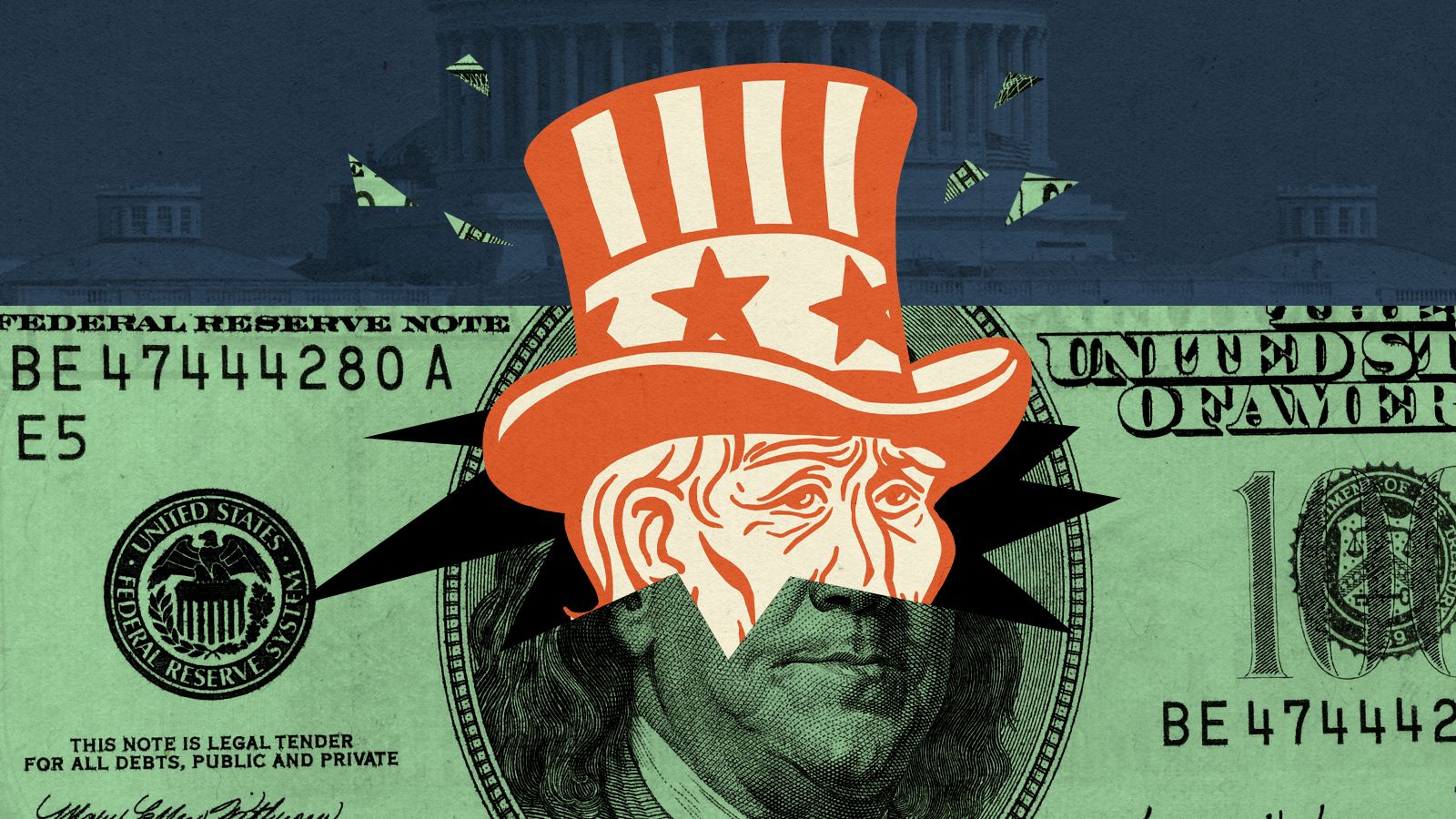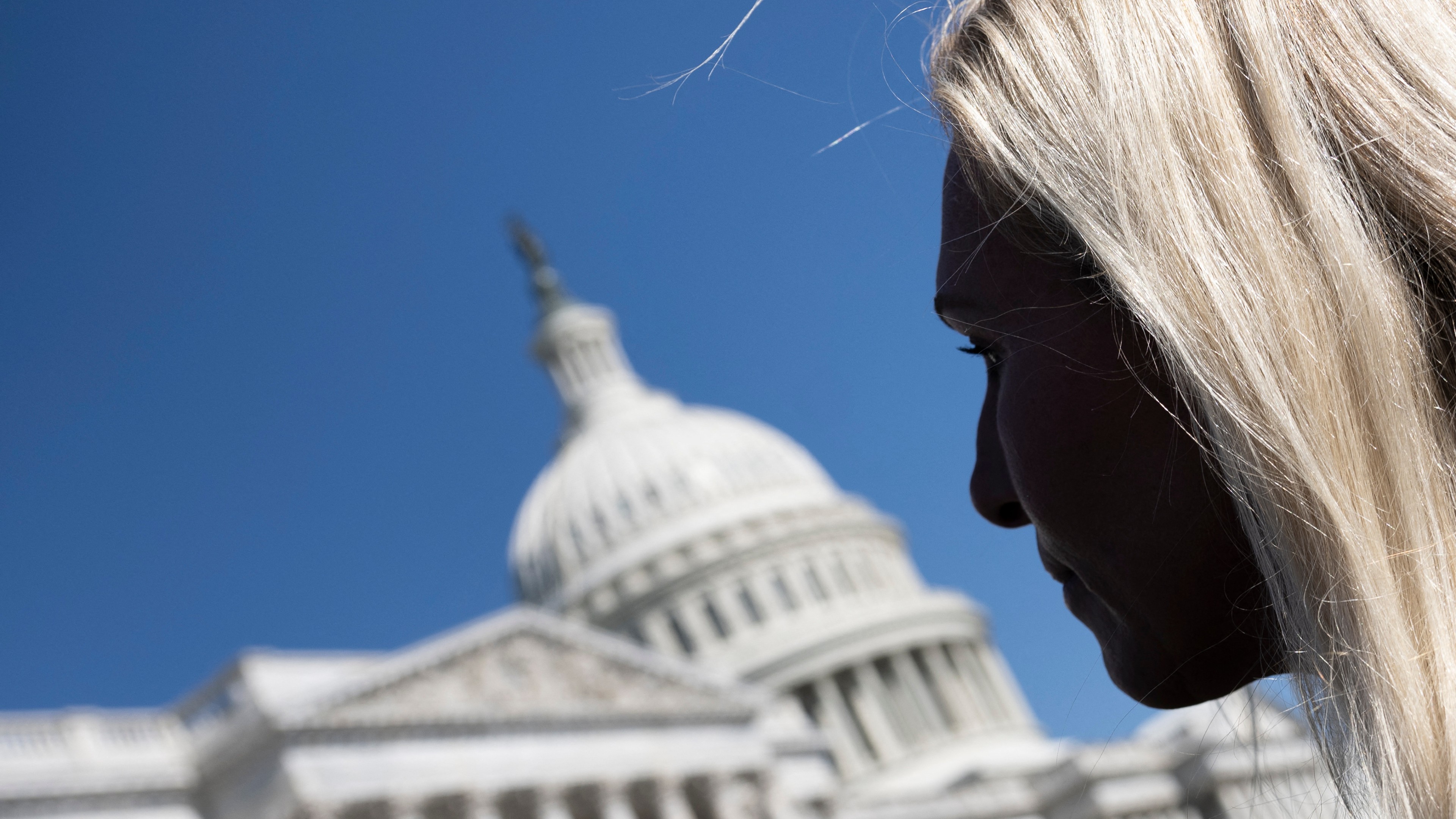What happens if the U.S. breaks through its debt ceiling?


A free daily email with the biggest news stories of the day – and the best features from TheWeek.com
You are now subscribed
Your newsletter sign-up was successful
At some point in the very near future the United States will hit its $31.4 trillion debt limit, the statutory threshold which limits the country's borrowing ability to pay back its existing debt. While nobody knows exactly when that limit will be breached, Treasury Secretary Janet Yellen's recent letter to congressional leaders claimed the ceiling could be broken as early as January 19th. The letter sent the government into overdrive to address the looming crisis before, as Yellen warned, the Treasury Department becomes forced to take "certain extraordinary measures to prevent the United States from defaulting on its obligations" sometime this summer.
What happens if the nation does indeed burst through its self-imposed debt limit? Put simply: nothing good.
First, it's important to understand that the debt limit is fundamentally retroactive — that is, it is the amount of money the government can borrow in order to pay back its existing loans, not take out new ones. What this means practically is that if the debt limit isn't raised, the government would be fundamentally incapable of meeting its current financial obligations — something that hasn't happened in the century since the debt limit was first enacted. And while there are a number of financial maneuvers (the so-called "extraordinary measures" Yellen mentioned) to stave off that possibility, the bottom line is that if Congress doesn't act to either raise the limit or, at the very least, temporarily suspend it, the country will face a cascading sequence of economic disasters as the government fails to meet its basic fiduciary obligations.
The Week
Escape your echo chamber. Get the facts behind the news, plus analysis from multiple perspectives.

Sign up for The Week's Free Newsletters
From our morning news briefing to a weekly Good News Newsletter, get the best of The Week delivered directly to your inbox.
From our morning news briefing to a weekly Good News Newsletter, get the best of The Week delivered directly to your inbox.
Perhaps the most straightforward consequence of a debt breach is the effect it would have on the country's credit rating, which, as with individual people's credit scores, signifies to lenders how well it can handle its money. Although the United States has never defaulted on its loans by breaking the debt ceiling, the mere threat of doing so was enough to contribute to Standard and Poor's — one of the credit services that oversees national credit ratings — downgrading of the country's AAA ranking to AA+ in 2011. What followed then was a massive stock market drop, and while it's unclear whether a default and downgrade would prompt the same sort of dramatic market reaction, Moody's Analytics, a financial intelligence company, warned in 2021 that "a default would be a catastrophic blow to the nascent economic recovery from the COVID-19 pandemic."
"Global financial markets and the economy would be upended," the company continued. "Even if resolved quickly, Americans would pay for this default for generations, as global investors would rightly believe that the federal government's finances have been politicized and that a time may come when they would not be paid what they are owed when owed it. To compensate for this risk, they will demand higher interest rates on the Treasury bonds they purchase. That will exacerbate our daunting long-term fiscal challenges and be a lasting corrosive on the economy, significantly diminishing it."
As the Biden administration explained in an essay released shortly after Moody's warning, the lasting impact of a debt ceiling breach and default would not only cripple basic federal functions — everything from military preparedness to keeping national parks up and running — but would also see interest rates spike for borrowers looking into home and auto loans, potentially delay crucial payments like Social Security, Medicare and Medicaid, and veterans disability benefits. "The United States has never intentionally defaulted on its obligations for one reason above all others: the self-inflicted economic ruin of doing so would be catastrophic," the White House noted. "Just the threat of a default has negative effects on the U.S. economy, and an actual default for any amount of time would inflict a devastating blow that would be felt by families, businesses, and the economy here and globally for decades to come."
For this reason, the president's team has to date staunchly refused to negotiate with the new Republican House majority, which has seized upon the coming debt limit breach as leverage to try and enact a host of deep federal spending cuts, including — per some GOP lawmakers — to entitlements such as Social Security.
A free daily email with the biggest news stories of the day – and the best features from TheWeek.com
"We believe when it comes to the debt limit, it has been done in a bipartisan way over the years and decades, and it should be done in a bipartisan way," White House Press Secretary Karine Jean-Pierre said plainly shortly after Yellen issued her warning to Congress.
"And it should be done without conditions," Jean-Pierre continued. "That is important here."
Rafi Schwartz has worked as a politics writer at The Week since 2022, where he covers elections, Congress and the White House. He was previously a contributing writer with Mic focusing largely on politics, a senior writer with Splinter News, a staff writer for Fusion's news lab, and the managing editor of Heeb Magazine, a Jewish life and culture publication. Rafi's work has appeared in Rolling Stone, GOOD and The Forward, among others.
-
 Crisis in Cuba: a ‘golden opportunity’ for Washington?
Crisis in Cuba: a ‘golden opportunity’ for Washington?Talking Point The Trump administration is applying the pressure, and with Latin America swinging to the right, Havana is becoming more ‘politically isolated’
-
 5 thoroughly redacted cartoons about Pam Bondi protecting predators
5 thoroughly redacted cartoons about Pam Bondi protecting predatorsCartoons Artists take on the real victim, types of protection, and more
-
 Palestine Action and the trouble with defining terrorism
Palestine Action and the trouble with defining terrorismIn the Spotlight The issues with proscribing the group ‘became apparent as soon as the police began putting it into practice’
-
 French finances: what’s behind country’s debt problem?
French finances: what’s behind country’s debt problem?The Explainer Political paralysis has led to higher borrowing costs and blocked urgent deficit-reducing reforms to social protection
-
 How long will Social Security remain solvent?
How long will Social Security remain solvent?Today's Big Question And what can be done to fix its current precarious situation?
-
 The rise of the world's first trillionaire
The rise of the world's first trillionairein depth When will it happen, and who will it be?
-
 Is Marjorie Taylor Greene finished?
Is Marjorie Taylor Greene finished?Talking Points Marjorie Taylor Greene's effort to oust House Speaker Mike Johnson failed, but it still left many of her fellow Republicans furious
-
 The surge in child labor
The surge in child laborThe Explainer A growing number of companies in the U.S. are illegally hiring children — and putting them to work in dangerous jobs.
-
 Your new car may be a 'privacy nightmare on wheels'
Your new car may be a 'privacy nightmare on wheels'Speed Read New cars come with helpful bells and whistles, but also cameras, microphones and sensors that are reporting on everything you do
-
 Empty office buildings are blank slates to improve cities
Empty office buildings are blank slates to improve citiesSpeed Read The pandemic kept people home and now city buildings are vacant
-
 Why auto workers are on the brink of striking
Why auto workers are on the brink of strikingSpeed Read As the industry transitions to EVs, union workers ask for a pay raise and a shorter workweek
